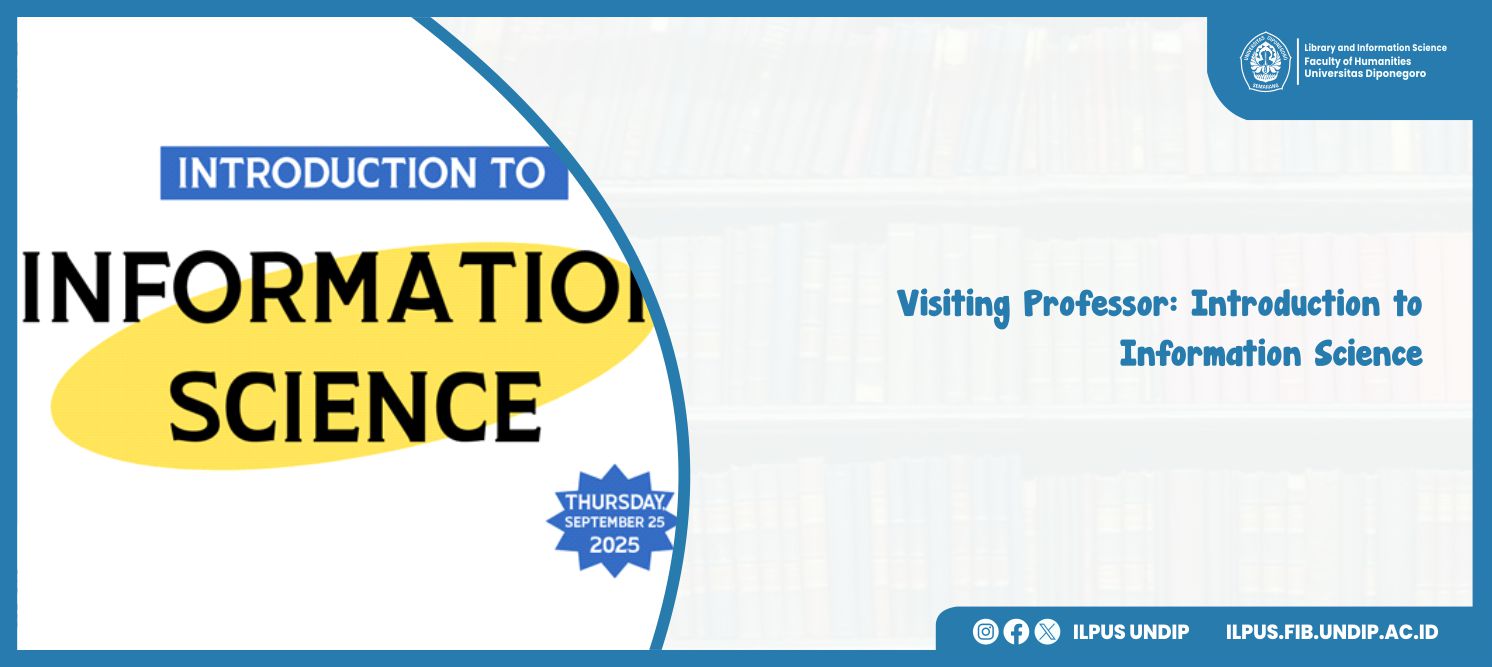
Semarang, September 25, 2025 – The Library and Information Science Study Program, Faculty of Cultural Sciences, Diponegoro University held a public lecture with Dr. Adamu Sa’ad Madaki from Federal University Duste, Nigeria. With the topic titled, “Introduction to Information Science”, Dr. Adamu discussed the importance of information science, the challenges faced, and the future of information science.

Dr. Adamu defines information science as a discipline or practice that focuses on the collection, analysis, storage, and effective use of information, emphasizing four main elements, namely information, people, technology, and systems. As quoted from Peter Sondergaard, “Information is the oil of the 21st century, and analytics is the combustion engine,” information science does not only contain raw data, but also focuses on humans in terms of problem solving, how individuals search for and utilize information to meet various needs. Furthermore, Dr. Adamu conveyed the DIK (Data, Information, Knowledge) hierarchy by describing the transformation from data to information to knowledge.

Dr. Adamu then discussed six core areas of information science, including information organization, information retrieval, information systems and technology, human information behavior, knowledge management, and ethics and policy. He explained classification systems, cataloging methods, the use of OPAC, and collection search strategies. In addition, he explained the use of databases such as Google Scholar and Science Direct, the role of digital technology and AI, and the importance of understanding user information behavior. Dr. Adamu also emphasized the importance of restricting access to information to authorized parties only and protecting personal data from misuse.

In his presentation, Dr. Adamu explained the importance of information science in supporting knowledge creation, decision making, encouraging innovation, and combating misinformation. With its interdisciplinary, technology-oriented, and problem-solving characteristics, information science is relevant to various aspects of life. Thus, information science not only plays a role in education, but also encompasses the fields of health, business, and government.

The development of information science is influenced by cutting-edge technologies such as AI, big data, and digital transformation, which are current trends. Therefore, several challenges have emerged in information science, such as information overload, the digital divide, data security, and ethical dilemmas. In this regard, Dr. Adamu emphasized that information science will develop in the future towards AI-based information systems, personalized information search and services, and the development of smart libraries as modern knowledge centers. In conclusion, Dr. Adamu stated that information science is a broad field of study that is closely related to humans, knowledge, and technology for the advancement of society.




